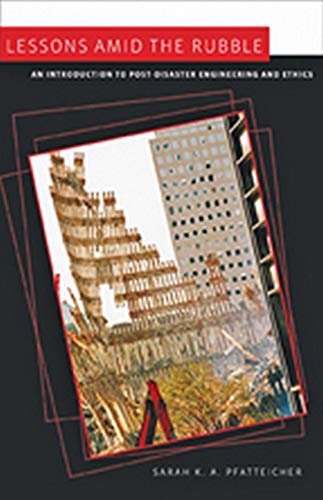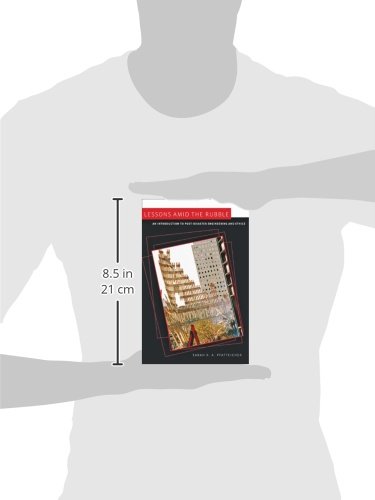Servicios al cliente
Sobre nosotros
Copyright © 2025 Desertcart Holdings Limited
Desert Online General Trading LLC
Dubai, United Arab Emirates



Lessons amid the Rubble: An Introduction to Post-Disaster Engineering and Ethics (Johns Hopkins Introductory Studies in the History of Technology)
T**S
Very insightful
This book is a must read for civil engineers, students and veterans alike. It clearly demonstrates how Engineering is much more than just "running the numbers".
C**R
I didn't get much from it, but others might
As a structural engineer with a strong interest in forensic engineering, I very much looked forward to this book, since it asks the question of what structural engineers should do differently (or not) after the experience of disasters such as 9/11.The author, Sarah Pfatteicher, is a historian who happens to work in a university civil engineering department, which is very unusual and entails intriguing possibilities regarding the insights she might offer. Unfortunately, I found the book a bit shallow, which is probably a reflection of her not herself being an engineer. She correctly notes that engineering is characterized by ambiguity, imperfection, limitations, tradeoffs, creativity, and caution, rather being a simple application of precise principles in order to obtain uniformly optimal solutions ("applied science"), but this is obvious to all experienced engineers who are at least a little bit reflective and not limited solely to cookie-cutter design.What annoyed me more is that, in trying to answer the question of how structural engineers should respond to disasters resulting from terrorism, she doesn't seem to quite grasp the point that terrorism is a sociopolitical problem which requires a sociopolitical solution, not fundamentally an engineering problem. It's fine for engineers to fortify particularly attractive targets against attacks, but we can never fully achieve security in this way because of economic and physical constraints, plus terrorists can easily just switch to other targets anyway. I'm not saying that Pfatteicher is unaware of this, but she never quite homes in on this fundamental truth.All of this is somewhat harsh criticism, so let me end on a more positive note. While I didn't get much from this book, perhaps non-engineers and young engineers would benefit much more than I did, and perhaps they're the true intended audience. For that reason, I'll be generous and give the book 4 stars, and I hope that other reviewers will chime in to offer different perspectives on the book.
T**Y
Five Stars
Good
B**A
Five Stars
Great!
T**H
One Star
Disappointing. Very little actual data.
Trustpilot
Hace 3 días
Hace 2 días
Hace 1 mes
Hace 3 semanas